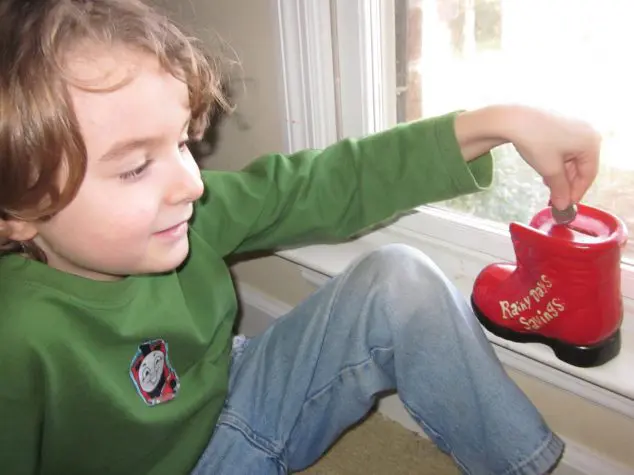Oddly there are very few financial classes offered in most high schools. Financial education for kids is often neglected in any formal setting. It is therefore imperative that we as parents are responsible for teaching children about finances. However, many parents are unsure of what they should be teaching their kids about money and how to go about doing so. Financial literacy affects us all, and sharing these financial tips with your kids can help breed smart-minded financial accountability. Here are some tips and practices to ensure today’s kids are turning into financially fit individuals. The sooner you start teaching kids about money and financial responsibility, the better!
How To Teach Kids About Money And Personal Finances

Teaching kids about money is an important life skill that can help them manage their finances effectively in the future. It begins with the basics. Kids learn about different types of money (coins, bills, digital currency) and their value. Then they need to learn about spending, saving, and and budgeting, laying a foundation for financial literacy.
Start teaching children about money and finances at a young age.
What do you start teaching your kids and at what age? Well, there are things parents can do starting as young as 3 to help their children learn the value of money. You may want to think about letting your kids earn a small allowance and then teaching them how to save a percentage and treat themselves with a percentage of that. Certain chores should be part of the child’s responsibility to the household. Other chores can be done with an allowance as part of the structure.
As kids get a little older, around 9-13, you can step up their financial education. Talk to kids about how much things cost so they can begin to see how finances work. Let them help you at the grocery store by looking at tags to compare prices per ounce. If they want a video game, let them see how much it costs and calculate how long it will take to earn it through doing their chores. You may want to let them get a debit card with parental controls so that they can learn to manage their money.
Help older kids, around 12-18, open a savings account and learn how to track their money online and in a manual ledger. Talk to your kids about how credit cards should be used and the fact that if they aren’t paid off each month there are sky high interest rates and late payment fees. This last step is a very important part of financial literacy for kids and teens.
Set up a “pay yourself first” system.
Have your kids put money into a savings account before they spend a dime of the money they have earned. Learning to save a percentage of their earnings is very important and teaching them to create a special savings fund for emergencies is a good idea.
Get teens involved with the household budget.
Involve kids in everyday financial decisions, such as grocery shopping, to show them how money is used. Think about where you can work the teens into the planning and the executing of the monthly budget. Letting them in on the process of a small part helps involve them and prepare them for financial responsibility. You can let them draw up a simplified version of a budget for themselves to see how the process is done and talk about recurring household bills to they can begin to know what to expect.
Prep teens for the world of investing!
Teach the importance of saving by setting up a piggy bank or a savings account. Joint savings accounts where kids can actively participate in deposits and withdrawals can be set up around age 8 and above. Look for banks that offer special savings accounts for kids with no fees, low minimum balance requirements, and good interest rates. Let your child be part of the process, from choosing the bank to making deposits.
For teens, set up a “pretend 401K” and match it as the kids save. Have your kids take a percentage of what you save through couponing and invest it in stocks of companies they believe in.
Increase the odds of raising financially responsible kids by doing 5 things.
Based on a study by The Boys and Girls Clubs of America and the Charles Schwab Foundation, a financial education for kids should include 5 important elements.
- Help your child Learn to manage a savings & checking account
- Teach kids how to track their spending
- Teach kids the importance of goal setting
- Teach kids how to use technology and online tools to save money
- Help your child learn the steps to creating and maintaining a budget

Three financial lessons your kids need to learn before they go off to college.
- Avoid the credit card trap! College campuses allow credit card companies to solicit. Your child should know not to sign up for every card they see and you should discuss rules if they will be applying for any cards. They need to know how credit cards work and to try to pay off the full balance each month to avoid interest.
- How to save on transportation, groceries, and entertainment while away from home.
- Teach your child to develop the habit of paying herself first as a savings technique.
Capital One reports that 69% of parents feel less prepared to talk to their children about investing, financial guidance and advice than they do the “birds and the bees.” I hope these simple strategies help parents begin financial discussions with their children more easily.
Conclusion
Incorporating these tips and activities into your routine can help your kids develop a healthy understanding of money management. Teaching kids about finances is crucial for several reasons. It equips them with the knowledge and skills they need to manage money responsibly throughout their lives. The sooner kids gain confidence in managing their own money, the quicker they will gain independence from you and the less likely they are to fall into financial trouble and need you to bail them out. Understanding credit and debt helps kids avoid common financial pitfalls like excessive borrowing and high-interest debt.
Developing good money management habits early can lead to lifelong financial health and stability. Equipped with financial knowledge, kids are less likely to experience financial stress and more likely to lead stable, secure lives. They develop essential life skills that help them make informed decisions, achieve their goals, and contribute positively to society. Please share any tips you have on what works for your family for teaching kids financial responsibility!
Related Posts:
